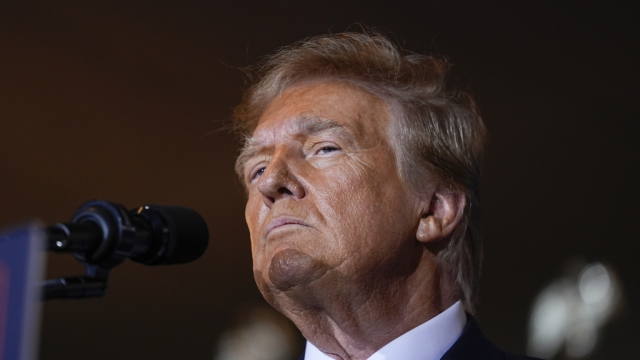As soon as the final polls closed on Tuesday for the New Hampshire primary, Scripps News and Decision Desk HQ was able to quickly project that former President Donald Trump would win the state's Republican primary.
The New Hampshire primary came one week after Florida Gov. Ron DeSantis complained that networks called the Iowa caucuses for Trump while voting was still taking place. Unlike primaries, which have an exact moment polls close, caucuses are generally held like community meetings, meaning ballots could be turned in over the course of an hour or so.
What also sets New Hampshire's primary apart from most states' elections is there is not a uniform time polls close in the state. While most election sites closed at 7 p.m. Tuesday, some townships kept polls open until 8 p.m.
SEE MORE: Trump ready to shift focus to general election following New Hampshire
So how was a projected winner announced so quickly?
Decision Desk HQ collects results from thousands of election authorities like county clerks and election boards. Using on the ground reporters and real-time data collection, their experts then analyze the results and compare it with historical data and their benchmarks.
Before making a call, Scripps News gets the same data in real time and brings it to you on air and online.
Projections are not binding and have no bearing on the actual result. But when a news outlet calls a race, there is a near mathematical certainty that candidate will win.
While projecting who would win was of importance, projecting the number of delegates each candidates gets also needs to be determined.
There were 22 delegates up for grabs for Republican candidates. New Hampshire allocates delegates proportionally among all candidates getting at least 10%. Decision Desk HQ projects Trump will win at least 12 delegates, while Haley will win at least nine. There is one left to award.
After including results from Iowa, Trump will leave New Hampshire with at least 32 delegates while Haley has 17. As of late Tuesday evening, two delegates remained undetermined.
For the entire nominating contest, there are 2,429 delegates, meaning it takes 1,215 to secure the GOP's nomination.
So far, less than 3% of the total delegates up for grabs have actually been awarded.
Trending stories at Scrippsnews.com



